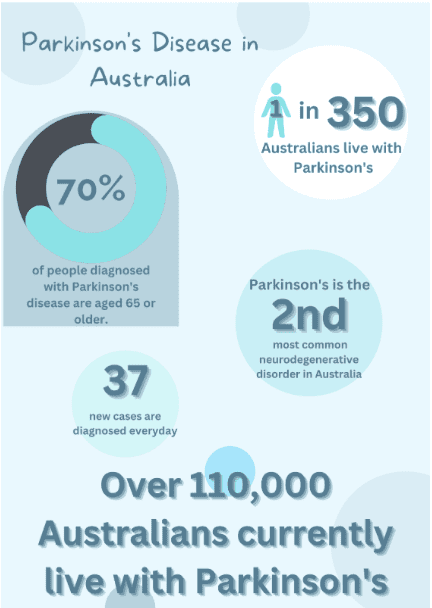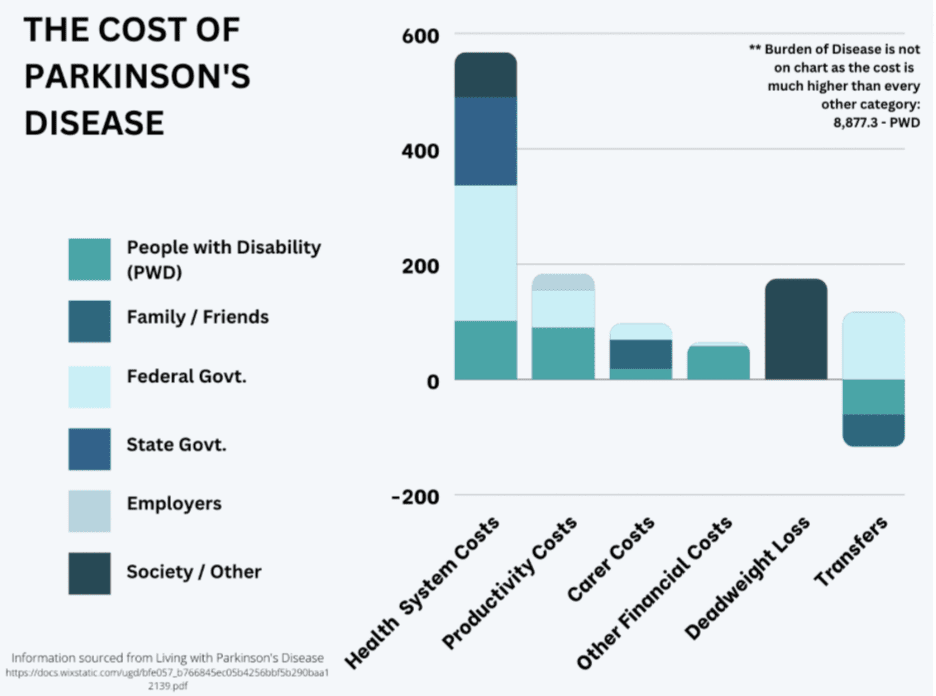The national voice for people living with Parkinson’s disease is calling for more funding and care, with the disease now the fastest-growing neurological condition.
Parkinson’s Australia believes it is imperative to focus on the well-being, independence, and opportunities of those suffering from the disorder.
With no cure for Parkinson’s, timely diagnosis, equitable healthcare access, and community support are vital for patients. However, Parkinson’s Australia said current policy settings in aged care, income assistance, and health systems fall short of adequately supporting people with the disease.
The prevalence of Parkinson’s disease in Australia has been steadily rising. Following Alzheimer’s disease, Parkinson’s is the one of Australia’s most prevalent neurodegenerative diseases.

Tamara Robertson
Once diagnosed, individuals with Parkinson’s face an average lifespan of approximately 12.4 years from onset to death (Australian Institute of Health and Welfare). However, some individuals diagnosed early in life can endure the complexities of Parkinson’s for longer, showcasing the enduring resilience and strength of those affected.
Beyond the emotional toll, Parkinson’s exacts a formidable financial burden on an individual and their family. The average lifetime cost for someone living with Parkinson’s can reache $161,300. This significant financial strain encompasses various aspects of care, treatments, and support necessary to manage the disease effectively.

The economic impact of Parkinson’s on society as a whole is staggering. In 2014 alone, the total economic cost of Parkinson’s disease exceeded a daunting $9.9 billion, reflecting a substantial 46% increase since 2005 . This substantial rise reflects the urgency for strategic investments, research advancements, and comprehensive care strategies to mitigate the escalating burden on individuals, families, and the broader community.
Recognising the urgent need for advanced Parkinson’s disease treatment, St George Hospital’s Movement Disorder Clinic has launched an innovative therapy aimed at enhancing patients’ quality of life. This approach involves the constant flow of medication into the small intestine, thereby stabilising symptoms. The therapy holds promise for improving the well-being of sufferers. The clinic’s founder envisions expanding the treatment to other neurological disorders in the future, potentially revolutionising the field of neurology.
Parkinson’s Australia said more funding for research is needed, as well as improving policies in aged care, income support, and health systems.

